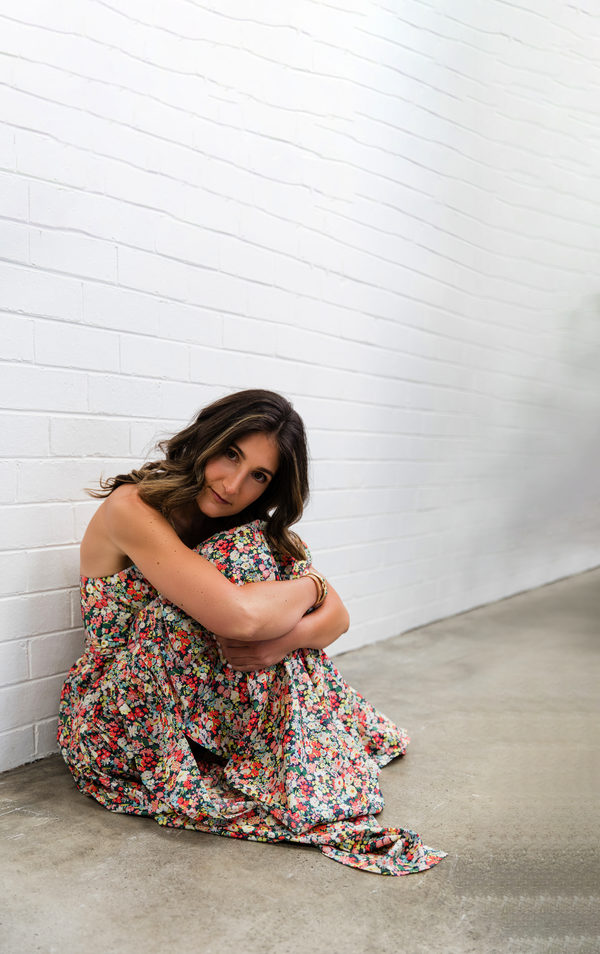Grief has a funny way of permeating people’s lives. Loss and trauma are not something to ‘get over’. Rather, those who experience loss and trauma learn how to manage the emotions. Grief becomes part of you and your life grows around it.
It’s how Natasha Sholl has felt for years.
After losing her partner and then her brother, Sholl has finally managed to put her feelings into words. And her book, Found, Wanting is a heartfelt memoir on how she continues to navigate the landscape of grief in a society that is still uncomfortable with the grieving process, and how she found love and life again with her husband, Dean.
Sholl has always been a writer, but she says she has always felt held back by the story that has just been waiting to be told.
“I was too scared to write about it,” she said. “And everything else I tried to write didn’t feel authentic because I had this other story that needed to get out first, but I kept trying to push it down.”
A couple of years ago, Sholl finally felt ready. Perhaps it was because she was heading towards the age her brother Matt was when he suddenly passed away, or perhaps the fear of not writing it was greater than the fear of letting it all out.
Whatever the reason, Found, Wanting is a powerful reminder that in grief, there is also hope and love, and you will find a way through.
“Grief plays tricks with us. Everything about grief is so irrational, it just doesn’t play by the rules,” Sholl said as we talked earlier this month about our grief journeys together.
Take time, for example, she said. “I still have to do all these leaps to try and work out how much time has passed. We’re coming up to the anniversary in February, and still, off the top of my head, I can’t tell you how many years it has been … it’s almost like it could have happened yesterday.”
“The grief stays the same size. The life we build around it just gets bigger, and it all gets integrated. We shouldn’t have to try and shrink the loss.”
Sholl is talking about her partner, Rob, who passed away in the middle of the night when his heart stopped suddenly. Sholl was just 22 years old. They had been planning a future together, and suddenly, she was grieving not only the life lost, but the lost future as well.
“Just because you don’t share DNA with someone, the loss you feel is equally as valid, they’re still family, they’re still part of your life,” she said.
Sholl was never seen as a ‘mourner’ during the shiva period because she and Rob weren’t married.
“It’s understanding the connections we have with someone. You don’t just lose that person. You lose the future that you’d planned together, whether that’s a partner, a parent or a child. It’s not like ‘oh well, they died and it’s in the past and that’s very sad’. Your whole future is forever altered.”
Nine years after losing Rob, Sholl’s brother Matt died. It was also his heart.
In Found, Wanting, Sholl talks about the shiva period for Jews. The quiches that arrived at the door, the people who flooded the homes. And while she acknowledges that Judaism is very intuitive when it comes to mourning traditions and the care that is shown through the shiva period, it’s the long-term grief that society still struggles with. For a while, Sholl felt she wasn’t grieving ‘right’ because she was carrying around her grief for years after the losses, while at the same time, figuring out how to build a new life.
“The grief stays the same size. The life we build around it just gets bigger, and it all gets integrated. We shouldn’t have to try and shrink the loss. Everything exists at the same time, which is a concept that sounds obvious when you say it like that, but it just wasn’t obvious when I was knee deep in it all,” she said.
“You still have that exact same level of missing the person, because they’re still missing, so how could you not miss them…”
It’s the judgement that Sholl is trying to dispel, explaining through the book, and during our chat, that everyone grieves differently. Sholl and her oldest brother Andrew, for example, grieved the loss of Matt very differently.
“[We need to] reduce the judgement. We all manage in different ways, and however people manage is OK,” she said. Sholl wrote the book essentially to a younger version of herself, or to anyone who is going through grief, loss or even the long tail of grief or loss.
“You still have that exact same level of missing the person, because they’re still missing, so how could you not miss them,” she continued.
While Sholl said that writing the book was terrifying, holding the book now, in all its glory, is a very visceral feeling. She admits that she had to write with blinkers on, assuming that no one would read it, otherwise “I just don’t think I would have been able to write most of what I said”.
“It’s all very exposing so I feel a little bit naked,” she laughed. “But I just have to look at the bigger picture, which is that it’s the book I wish I could have read when I was going through it. So, however exposing it is, if one person reads it and says ‘oh that’s how I feel, I’m not going crazy’ then you know, the rest, is fine.”
What’s most important for Sholl is that people understand that no matter how much time has passed, the loss is still there, and we need to be compassionate, because everyone is missing someone.
“Still mention their names, still show up a year later, even 10 years later. It’s important.”
Found, Wanting is published by Ultimo Press, $32.99 rrp.


comments